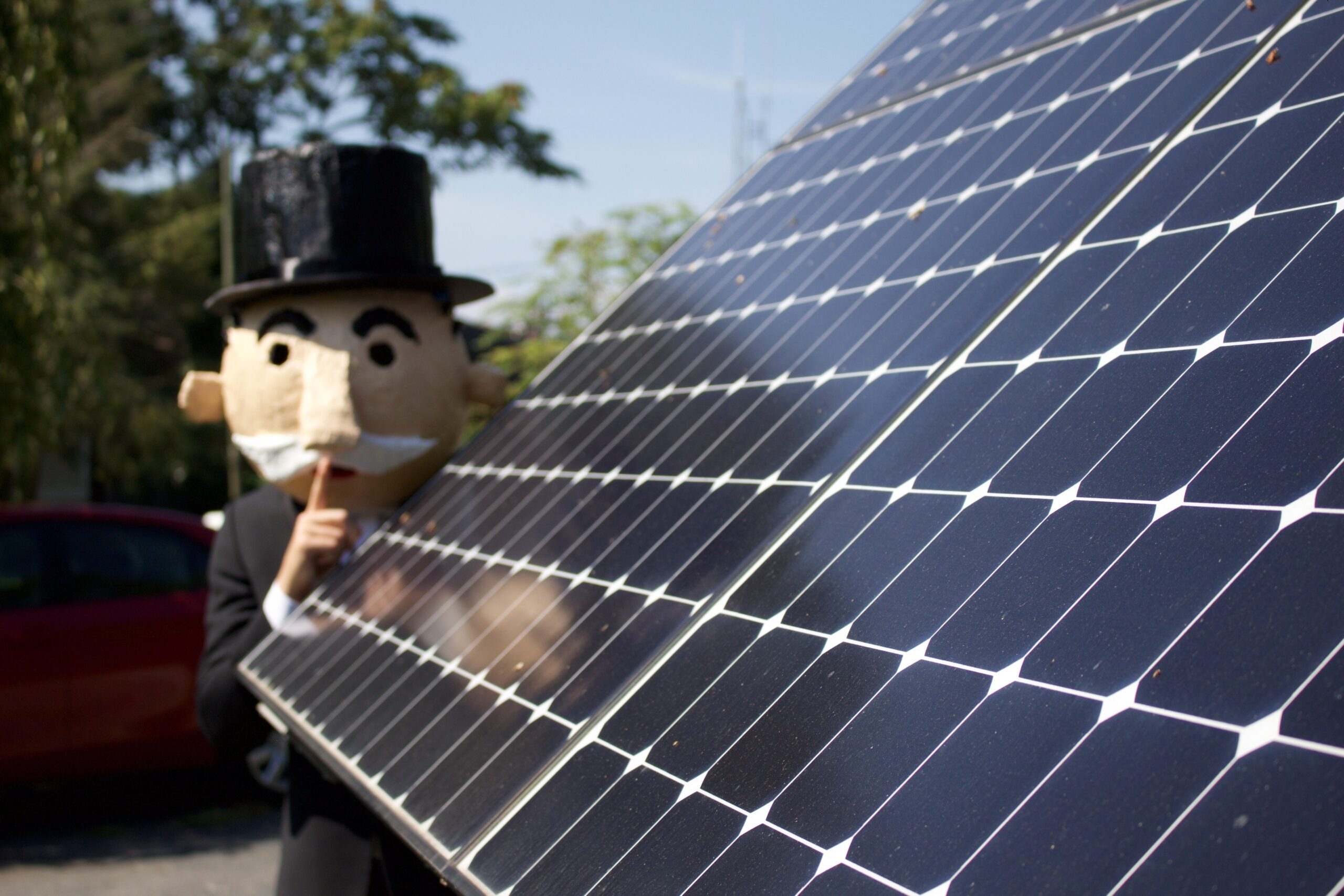Over 4.4 million Floridians cast a vote in support of solar choice in 2016. Yet, just three votes at a PSC workshop on September 17 could lay the groundwork for squelching rooftop solar development in the Sunshine State.
George Cavros | September 11, 2020 | Energy Policy, Florida, Solar“If it ain’t broke, don’t fix it.”
This adage clearly applies to an effort underway in Florida to weaken our cornerstone policy for rooftop solar development – net metering. On September 17, the Florida Public Service Commission (PSC) will hold a workshop to review the status of the state’s net metering rule, which could lead to establishing a rule-making docket in order to rewrite the rule. If rewriting the rule were to happen, it could squelch rooftop solar development in the Sunshine State.
Now is the time to speak out in support of net metering, we don’t have time to waste.

Take Action
Watch our Webinar “How Net Metering is Threatened in Florida”
Why is the Commission choosing to reexamine the net metering policy now?
We’ve seen this episode play out before: a utility front group argues that solar net metering customers are imposing costs on other customers and calls for a change. In 2015, the front group was Consumers for Smart Solar. It was bankrolled by the state’s monopoly utilities who spent over $20 million dollars trying to convince voters to amend the state constitution in a way that would have paved the way for onerous fees and costs on Floridians that power their homes and businesses with clean solar power. A coalition of over 100 groups pushed back on the misleading amendment. Ultimately, it was rejected at the ballot box, with over 4.4 million Florida voters casting a vote in support of solar choice in November 2016.

Fast-forward four years later. Energy Fairness, formerly the Partnership for Affordable Clean Energy or “PACE’” another utility front group with long-established ties to the power companies in the Southeast, issues a misleading report arguing – you guessed it – that rooftop solar customers don’t pay their fair share. The flawed report was used as a predicate for a letter to the PSC by a freshman State Representative, Lawrence McClure, who called on the PSC to immediately review the rule. The result of that is the upcoming September 17th workshop. It’s unclear what happens from there but that’s why we need you to make your voice heard today!
A solution in search of a problem
Net metering is a policy that permits a customer to generate clean power on their own roof and provide any excess power back to the grid at a fair value. Forty-seven states have net metering policies. Florida’s policy was initiated by an Executive Order in 2007 and later memorialized in Florida statute. The law clearly states,
“It is in the public interest to promote the development of renewable energy resources in the state … and innovative technologies.”
It also charged the PSC with establishing a net metering rule for the state’s investor-owned utilities. Municipal and electric cooperative utilities also must establish their own net metering procedures, although without oversight by the PSC.
The cost shift arguments used by the industry are misleading at best.
First, the value of rooftop solar power to a utility’s system is supported by a number of reputable studies. Rooftop solar power provides benefits to the utility’s system that can lower power bills for everyone, such as reducing the fuel burned by the utility to generate its own power and transmission and distribution (grid) benefits. Plus it drives economic development and jobs while making our communities cleaner and more resilient to weather events.
Second, consider the source of the argument: monopoly power companies (and their surrogates) who are often slow to embrace technological innovation and energy freedom and are more interested in maintaining their captive customer base and growing their shareholders’ value.
Additionally, one need only look at the penetration level of rooftop solar development in Florida to realize that revising the rule now is a solution in search of a problem. There are fewer than 60,000 customer owned net-metered systems in Florida as of the 2019 reporting – but there are over 10 million electricity customers in Florida. This level of customer penetration, although it varies by utility, amounts to less than 1% of customers statewide. At these levels, net metering does not impose material operational or economic impacts on a utility’s system. While leading solar states have reviewed and revised their net metering policies, it has been after higher levels of customer penetration.
Take Action and Protect Solar Choice
What’s troubling is that it only takes three of the five PSC commissioners to support rule-making in order for the process to move forward. That would be a clear and present danger to future rooftop solar development and a stunning rebuke to millions of Floridians who rejected this when they cast a vote in support of rooftop solar development just four years ago.
These policy arguments will be hashed out at the PSC during the September 17 workshop, at which SACE and other solar advocates will be presenting. You can watch the workshop unfold starting at 9:15 AM ET on the PSC website here.
If you value customer choice and a cleaner energy future, now is the time to speak out. Please take a moment to make your voice heard before this pivotal workshop.
As always, SACE will keep you updated on these and any developments impacting your solar choice.